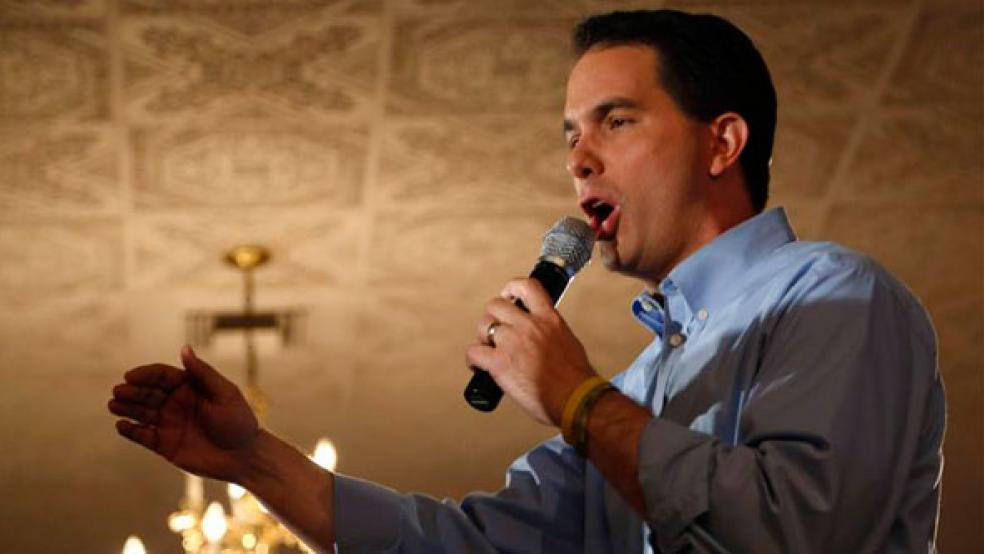In his second inaugural address on Tuesday, New Jersey Governor Chris Christie stressed bipartisanship and the need to work with Democrats to accomplish common goals. Tonight, Scott Walker, the Republican governor of Wisconsin and one of Christie’s likely rivals for the 2016 GOP presidential nomination, is expected to deliver a very different kind of speech.
Walker, a first-term governor who decisively won a recall election after his controversial – and successful – effort to strip many state workers of some collective bargaining rights as part of reining in pay and benefits, has relied on a Republican-controlled legislature to implement his priorities, eliminating the need to work with Democratic lawmakers.
Related: Do Governors Make Better Presidents? Maybe Not After These Scandals
His anti-union efforts in particular have made Walker a popular figure with the ultra-conservative Tea Party movement, and excerpts from Walker’s State of the State address, to be delivered at 7 p.m. central time, suggest he will highlight exactly the kinds of achievements that will resonate with those voters.
“Thankfully, the days of double-digit tax increases, billion-dollar deficits, and major job loss are gone,” the speech says. “We replaced them with massive tax cuts, growing budget surpluses, and significant job growth.”
Slashing state spending led to a budget surplus, and in the speech Walker is expected to say, “What do you do with a surplus? Give it back to the people who earned it. It's your money.”
Walker is expected to tout the decrease in property taxes and a freeze in tuition within the state university system. He will also encourage hiring individuals with disabilities.
Related: How Scott Walker Would Reform the GOP
On entitlement reform, one of the key issues for the Tea Party, Walker will present a plan that will increase demands on people receiving unemployment checks and food stamps, doubling the job search requirements for some and mandating job training classes for others. “We’re not making it harder to get government assistance; we're making it easier to get a job,” his speech says.
Finally, Walker will celebrate an expansion of Medicaid to “everyone living in poverty” in Wisconsin. This is a key talking point for Walker because – at least semantically – he is able to say that he expanded access to Medicaid even while rejecting federal funds that would have paid for it through the Affordable Care Act. Likely to go unmentioned is that the plan relies on ending coverage for tens of thousands of Wisconsinites currently covered under the state’s BadgerCare program and pushing them instead onto the federal health care exchanges.
Follow Rob Garver on Twitter @rrgarver
Top Reads from The Fiscal Times:





